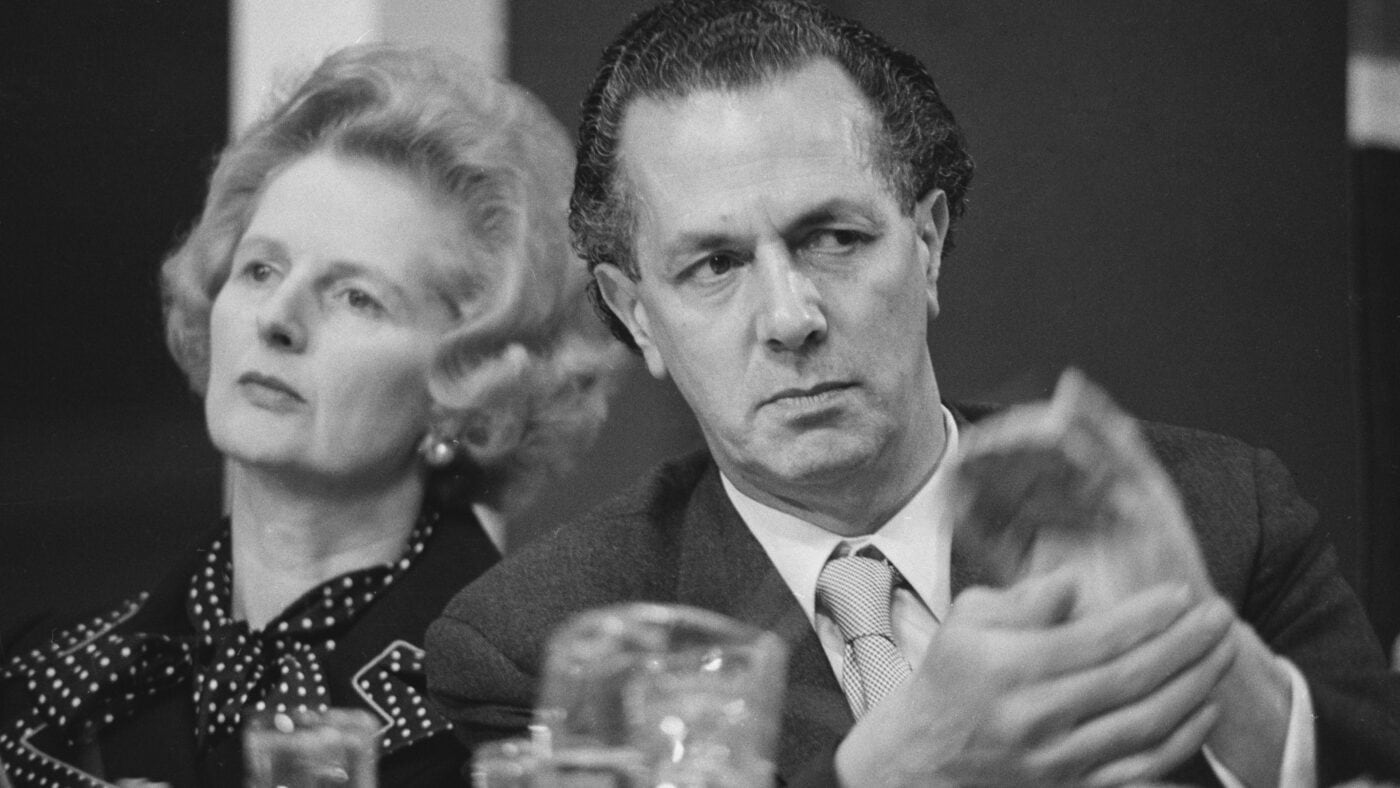Few politicians have been mocked as much as Keith Joseph, who found himself labelled the Mad Monk; and Labour’s Denis Healey once characterised Joseph as a combination of Rasputin, Hamlet and Tommy Cooper.
Of course, many leading politicians are mocked by those on the other side. But Joseph was mocked even by his own Tory colleagues. Lord Hailsham called him ‘dotty’, Reginald Maudling ‘nutty as a fruitcake’. Ian Gilmour thought that Joseph had ‘a Rolls-Royce brain without a chauffeur’, while Harold Macmillan thought him ‘the only boring Jew I’ve ever met’.
But Joseph achieved more than any of them, more indeed than any other post-war politician, except for Nigel Farage.
For it was Joseph who laid the ideological foundations for what came to be called Thatcherism. Margaret Thatcher was a politician of instincts, not ideas. Joseph supplied the ideas with which to clothe her instincts, and in doing so gave the Conservatives intellectual self-confidence, something that they had not enjoyed since the days of Joseph Chamberlain in the early years of the 20th century. The partnership between Joseph and Margaret Thatcher was, in the words of the journalist, Hugo Young, ‘one of the most formative political relationships of modern times’.
Joseph was fond of quoting the following lines from a now forgotten poet, Alfred O’Shaughnessy:
One man with a dream, at pleasure
Shall go forth and conquer a crown,
And three with a new song’s measure
Can trample a kingdom down.
Joseph both trampled a kingdom down, the kingdom of statism inherited from the war years, and he also conquered a crown, helping to regenerate Britain on the basis of the tenets of economic liberalism. He wanted to achieve ‘common ground’, based on the market economy, to replace the post-war settlement of the ‘middle way’ based on the mixed economy, state intervention and incomes policy.
Joseph influenced not just Margaret Thatcher and Geoffrey Howe, but also Tony Blair and Gordon Brown, who accepted the basic economic framework which the Conservatives had established. Indeed, Henry Kissinger was to tell Margaret Thatcher that the greatest tribute to her success was, paradoxically, the election of New Labour under Blair in 1997.
It is often said that Thatcherism was divisive and in some respects it certainly was – it led to an increase in economic inequality, divided North and South, and alienated Scotland, an important factor in the rise of Scottish nationalism. But much of Margaret Thatcher’s legacy was not divisive. There is now a broad consensus that there should be no further large-scale extensions of nationalisation. There is a consensus that the top rate of income tax should be far lower than it was before 1988, when it was 60%. It is currently 45%. There is broad agreement, shared by Rachel Reeves as well as Jeremy Hunt, that the conquest of inflation, which Joseph called ‘the arch-destroyer’, should be the major economic priority of government. There is broad agreement that trade unions need to remain within the framework of the law, and that labour markets should be flexible. In 1979, 29 million working days were lost through strikes; in 2023, a bad year for strikes compared to the preceding few years, just 2.5m. Margaret Thatcher settled all these issues just as Clement Attlee’s post-war Labour Government had seemed to settle many issues relating to health, education and welfare. Much of this was due to Joseph.
Ferdinand Mount, the head of Margaret Thatcher’s Policy Unit in 1982-3, who had previously worked for Joseph at the Conservative Research Department, rightly claimed that he had:
…changed the language of politics – all the issues he obsessed about are now discussed in terms that he made familiar. We take it for granted that the control of inflation is a matter not for political manipulation but for strict monetary control carried out by experts. We understand that the state is not an all-wise, benign master and that we need to watch all its activities with a close and sceptical eye. We have no illusions about standards in our worst state schools or about the feral upbringing so many children suffer. In fact there is scarcely anything that Keith Joseph worried about that we aren’t still worrying about too. I doubt whether that can be said of any other post-war politician who never became leader of his or her party.
The Britain we now live in is in large part a Britain that Keith Joseph helped to create.
You can purchase Vernon’s latest book, ‘Making the Weather’, here.
Click here to subscribe to our daily briefing – the best pieces from CapX and across the web.
CapX depends on the generosity of its readers. If you value what we do, please consider making a donation.


